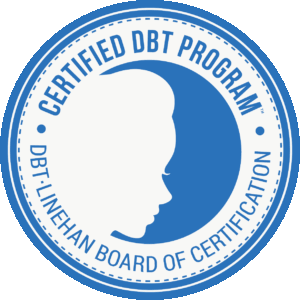In today’s fast-paced world, maintaining emotional well-being is crucial for overall health and happiness. Therapy techniques offer powerful tools to manage stress, anxiety, and emotional challenges effectively. Whether you’re dealing with daily pressures or deeper psychological issues, understanding and applying various therapeutic methods can lead to significant improvements in your mental and emotional health. This blog will explore several proven therapy techniques designed to enhance emotional well-being. From cognitive-behavioral strategies to mindfulness practices, we’ll delve into how these approaches can help you build resilience, improve self-awareness, and foster a more balanced life. By incorporating these techniques into your routine, you can take proactive steps towards a more fulfilling and emotionally stable existence.
Cognitive Behavioral Therapy (CBT) for Managing Negative Thoughts
Cognitive Behavioral Therapy (CBT) is a widely recognized and effective therapeutic approach designed to address and manage negative thoughts and behaviors. The core principle of CBT is that our thoughts, feelings, and behaviors are interconnected, and changing negative thought patterns can lead to more positive emotions and actions. This section explores how CBT works, its key techniques, and how it can help improve emotional well-being by transforming negative thought patterns into more constructive ones.

Understanding the CBT Framework
CBT operates on the premise that our thoughts influence our emotions and behaviors. By identifying and challenging negative or distorted thoughts, individuals can learn to replace them with more balanced and realistic thinking. This shift can lead to improved emotional responses and healthier behaviors. The framework of CBT involves collaborative work between the therapist and the client to identify negative thought patterns and develop practical strategies to address them.
Identifying Negative Thought Patterns
A crucial aspect of CBT is recognizing and understanding the negative thought patterns that contribute to emotional distress. Common negative thought patterns include all-or-nothing thinking, overgeneralization, and catastrophizing. For example, if you make a mistake at work and think, “I’m terrible at my job,” you’re engaging in all-or-nothing thinking. Identifying these patterns is the first step in addressing and altering them.
Challenging Cognitive Distortions
Once negative thought patterns are identified, CBT helps individuals challenge these distortions. This involves questioning the evidence for and against these thoughts, evaluating their validity, and considering alternative, more balanced perspectives. For example, if you’re thinking, “I always mess up,” you might challenge this by listing past successes and evaluating how often mistakes actually occur.
Developing Cognitive Restructuring Skills
Cognitive restructuring is a core CBT technique where individuals learn to reframe negative thoughts into more positive and realistic ones. This process involves consciously replacing distorted thoughts with healthier alternatives. For instance, if you think, “Nobody likes me,” cognitive restructuring would involve shifting this thought to, “I have friends who care about me and appreciate me.”
Implementing Behavioral Experiments
Behavioral experiments in CBT involve testing the validity of negative beliefs through real-life experiments. For example, if you believe that social events will always be awkward, you might gradually expose yourself to social situations to test this belief. These experiments help in gathering evidence to challenge and change negative beliefs.
Integrating Self-Care and Lifestyle Changes for Better Emotional Health
Achieving and maintaining emotional health requires more than just therapeutic interventions; it also involves adopting self-care practices and making lifestyle changes that support overall well-being. Self-care and lifestyle adjustments play a significant role in emotional health by fostering resilience, reducing stress, and enhancing quality of life. This section explores key strategies for integrating self-care and lifestyle changes to promote better emotional health and long-term stability.
Prioritizing Regular Exercise
Regular physical activity is a cornerstone of emotional well-being. Exercise has been shown to boost mood, reduce anxiety, and improve overall mental health by releasing endorphins, which are natural mood lifters. Engaging in activities like walking, running, or yoga not only supports physical health but also provides a constructive outlet for stress. Aim for at least 30 minutes of moderate exercise most days of the week to reap the emotional benefits.
Ensuring Adequate Sleep
Quality sleep is essential for emotional health, as it impacts mood regulation, cognitive function, and stress resilience. Poor sleep can exacerbate emotional issues and lead to irritability and decreased coping abilities. Establish a consistent sleep routine, create a restful sleep environment, and practice good sleep hygiene by avoiding screens before bedtime and managing stress through relaxation techniques.
Maintaining a Balanced Diet
Nutrition plays a critical role in emotional well-being. A balanced diet that includes a variety of nutrients supports brain health and mood stability. Foods rich in omega-3 fatty acids, such as salmon and walnuts, and those high in antioxidants, like fruits and vegetables, can positively impact emotional health. Avoid excessive caffeine and sugar, which can contribute to mood swings and energy crashes.
Practicing Mindfulness and Meditation
Mindfulness and meditation are effective self-care practices that can enhance emotional resilience and reduce stress. These techniques involve focusing on the present moment and cultivating a non-judgmental awareness of thoughts and feelings. Regular mindfulness practice can help manage anxiety, improve emotional regulation, and foster a sense of calm. Start with a few minutes each day and gradually increase the duration as you become more comfortable.
Building Strong Social Connections
Positive social interactions and supportive relationships are crucial for emotional health. Building and maintaining strong connections with friends, family, and community can provide emotional support, reduce feelings of loneliness, and increase overall life satisfaction. Invest time in nurturing relationships, engage in meaningful social activities, and seek support from others when needed.
Mindfulness and Meditation Practices to Enhance Emotional Resilience
Mindfulness and meditation are powerful tools for improving emotional resilience and managing stress. These practices help individuals develop a greater awareness of their thoughts and feelings, allowing them to respond more effectively to challenging situations. By integrating mindfulness and meditation into daily life, individuals can enhance their emotional stability and overall well-being. Here are key points to consider:
- Understanding Mindfulness: Mindfulness involves paying attention to the present moment with a non-judgmental attitude. This practice helps individuals become more aware of their thoughts, emotions, and physical sensations. By focusing on the here and now, mindfulness can reduce stress and improve emotional regulation.
- Benefits of Meditation: Meditation helps calm the mind, reduce anxiety, and increase emotional resilience. Regular meditation practice can lead to improved concentration, better emotional control, and enhanced overall well-being. Simple techniques include focusing on the breath or using guided meditations.
- Starting a Mindfulness Practice: Begin with short, manageable mindfulness exercises, such as mindful breathing or body scans. Gradually increase the duration as you become more comfortable. Consistency is key to reaping the benefits of mindfulness.
- Incorporating Meditation into Daily Life: Find a quiet space and set aside a few minutes each day for meditation. Techniques like guided imagery, loving-kindness meditation, and mindfulness meditation can be integrated into your routine to enhance emotional resilience.
Conclusion
Incorporating effective therapy techniques into your daily routine can significantly enhance your emotional well-being and overall quality of life. At DBT of South Jersey, we are committed to helping you navigate the complexities of emotional challenges through evidence-based practices like Dialectical Behavior Therapy (DBT). Our skilled therapists work collaboratively with you to develop personalized strategies that foster resilience, self-awareness, and emotional stability.
If you’re ready to take the next step towards a more balanced and fulfilling life, we invite you to reach out to us. Contact DBT of South Jersey at 1856-625-6550 or visit us in Voorhees, NJ 08043. Our team is here to support you on your journey to emotional wellness. Let us help you unlock the tools for a healthier, more resilient you.




